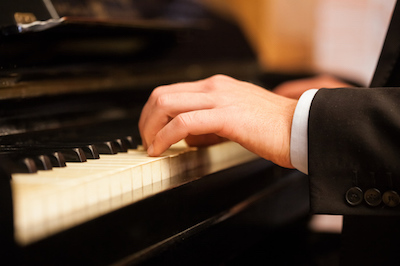As a parent, sometimes it’s difficult helping our children practice the piano. We want them to get better. To learn to love creating music and do it well. So we push.
When they sit down, we listen for the details. We expect to hear warm ups – scales are usually in the mix. Then we expect to hear music. Possibly running through a song or two, or practicing a certain part. Over and over again. 
We listen for it. We time it. We probe when we don’t hear what we anticipate.
But sometimes there’s more to practicing the piano than hitting the keys and hammering out a tune. Sometimes it’s the introspect that makes a difference too.
Imagine for a moment you’re making a fancy dinner for a special night. You’ve planned for this for days. You’ve shopped for the best ingredients. You’ve laid out the silver and china. You expect perfection.
You add a little of this. Stir. Add a little bit more. It simmers. It blends.
You take a spoonful and taste. You reflect. You determine it needs a little more of this. Or a little more of that.
Reflection is a natural part of a cook’s repertoire. It’s something she does to ensure her meal turns out just the way she planned.
The same can be said for a piano player.
Music is something you create, you feel, and you hear. And each of those skills must be refined over and over again.
Sure, you can practice several hours a day, beating out a tune over and over again. But what did you truly learn?
Instead, sitting down and feeling the music means the notes become an extension of who you are. That means understanding the music. That means feeling the notes. And reflecting on how you can put you into every step of the process.
If you really want your child to love playing the piano and improve his or her skills, don’t just listen for the music. Ask about reflection. What does a song do for her? How does she feel it before she plays it?
A little reflection can go a long way. It can help turn her into a lifelong lover of music.

